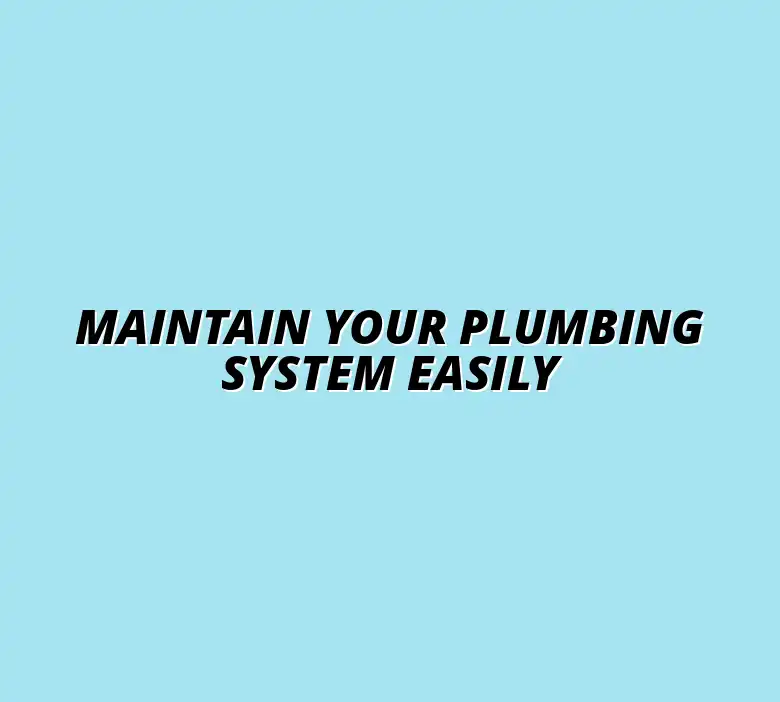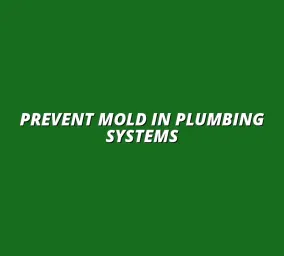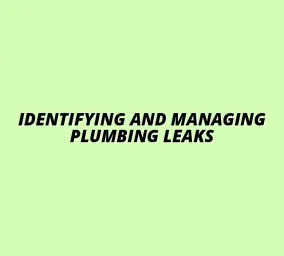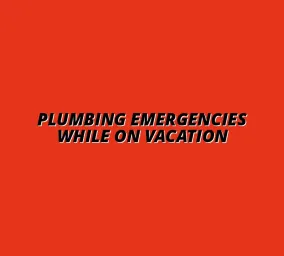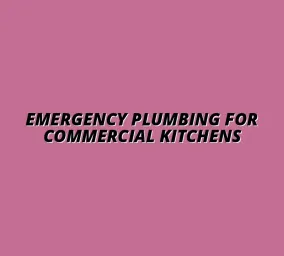Maintain Your Plumbing System Easily
Understanding Your Plumbing System and Its Importance
Every homeowner should take a moment to appreciate their plumbing system! It's not just a series of pipes and connections; it plays a crucial role in our daily lives. Understanding its importance can help you maintain it effectively, ensuring a safe and comfortable environment in your home.
A well-maintained plumbing system contributes to both the comfort and safety of your home. Imagine turning on the faucet and having clean water flow instantly. Or flushing the toilet without a second thought. Proper plumbing protects you from water damage and maintains your health by preventing issues like mold and mildew.
The Role of a Well-Maintained Plumbing System
One major benefit of a well-maintained plumbing system is the peace of mind it offers. You can avoid unexpected emergencies and the stress they bring. Regular maintenance helps you catch small issues before they become big problems, ensuring your plumbing operates smoothly.
Additionally, a well-kept plumbing system can significantly reduce long-term costs. Neglecting maintenance may lead to major repairs or even replacements, which can be financially draining. By being proactive, you can save yourself from costly surprises down the line.
Impact on Home Comfort and Safety
Your plumbing system is essential for your home’s comfort. A proper flow of hot and cold water not only makes daily tasks easier but also improves your overall quality of life. Plus, having safe drinking water is non-negotiable!
Moreover, safety is a huge concern. Leaky pipes can cause structural damage and create environments where mold thrives. Regular check-ups can help you catch these issues early, safeguarding your family’s health and well-being.
Reducing Long-Term Costs through Preventative Care
Investing in preventative care can lead to significant savings. Here are a few ways to cut costs:
- Conduct regular inspections to spot potential issues early.
- Flush your water heater annually to prevent sediment buildup.
- Seal any leaks promptly to avoid water waste.
These simple steps can extend the life of your plumbing system and reduce repair costs. Trust me, I’ve seen firsthand how a little care goes a long way in maintaining a healthy and efficient plumbing system.
Essential Maintenance Tips for Plumbing Systems
Maintaining your plumbing system doesn’t have to be overwhelming. With some essential tips and tricks, you can keep everything running smoothly. Regular inspections, proper drain cleaning, and managing water pressure are key to good plumbing health.
Let’s dive into some practical steps you can take to ensure your plumbing remains in top shape. Remember, it’s all about being proactive!
Regular Inspections to Identify Potential Issues
One of the best ways to keep your plumbing system healthy is by performing regular inspections. This allows you to pinpoint potential problems before they escalate. It’s like visiting the doctor for a check-up to catch any health issues early!
To ensure you're thorough, consider checking your plumbing at least twice a year. Here’s what to look for during your inspections:
- Check for leaks around faucets and pipes.
- Inspect water pressure levels to ensure they’re within the ideal range.
- Look for any signs of water damage or mold.
Frequency of Inspections Needed
As mentioned, aim for at least two inspections a year. However, if your home is older or you notice any issues, more frequent checks may be beneficial. It’s better to be safe than sorry!
The key is consistency. Make these inspections part of your home maintenance routine, and you'll likely save money on repairs in the long run.
What to Look for During Inspections
During inspections, keep a keen eye out for specific issues. Here are some common signs that may indicate a problem:
- Unusual noises from pipes.
- Foul smells coming from drains.
- Slow drainage in sinks or tubs.
Addressing these issues early can prevent bigger problems later on. Don’t hesitate to reach out to a professional if you’re unsure about anything!
Addressing Common Plumbing Issues and Solutions
As a homeowner, spotting plumbing problems early can save you from a lot of stress and unexpected expenses. Regularly checking your plumbing for signs of trouble can help keep your home running smoothly. Let’s dive into some common indicators of plumbing issues so you can stay one step ahead!
Identifying Signs of Plumbing Problems Early
It’s crucial to know what to look for when it comes to potential plumbing problems. Some of the most common indicators include:
- Unusual noises coming from pipes or fixtures
- Unexpected increases in your water bill
- Slow drainage in sinks or tubs
- Visible leaks or water stains on walls and ceilings
Being aware of these signs can help you address issues before they escalate. If you notice any of these problems, acting quickly is essential to prevent further damage.
Immediate Actions to Take
If you suspect a plumbing issue, here are some quick steps you can take:
- Shut off the water supply to the affected area.
- Try to contain any leaks using towels or buckets.
- Contact a licensed plumber if the problem persists or worsens.
These actions can help prevent more extensive damage while you wait for professional assistance. Remember, it’s always better to be safe than sorry!
Frequently Asked Questions About Plumbing Maintenance
Many homeowners have questions about plumbing maintenance. I’m here to help you find the answers! Understanding how to care for your plumbing can lead to better long-term results.
How Often Should I Inspect My Plumbing System?
It’s generally recommended to inspect your plumbing system at least once a year. However, if you notice signs of wear or live in an older home, more frequent checks may be beneficial. Regular inspections help catch small problems before they become major headaches!
What are the Most Common Plumbing Repairs?
Some of the most common plumbing repairs include:
- Fixing leaky faucets and toilets
- Unclogging drains and toilets
- Repairing or replacing broken pipes
- Addressing low water pressure
Being aware of these common repairs can help you understand what to watch for in your home. If you ever find yourself in need of help, don’t hesitate to reach out to us at Plumb Pro Care; we’re always here to lend a hand!
Strategies for Engaging Professional Help
Sometimes, plumbing problems require expert assistance. Knowing when to call a plumber can make all the difference in managing your home’s plumbing.
When to Call a Plumber for Assistance
Some plumbing issues are beyond DIY fixes. Here are some signs it's time to call a professional:
- Persistent leaks that don’t improve with minor repairs
- Major clogs that won’t clear with standard methods
- Water damage or mold growth in your home
Identifying serious plumbing problems early can save you money and stress down the line. Always trust your instincts—if you feel something isn’t right, it’s best to contact a plumber!
Questions to Ask Your Plumber Before Hiring
Before hiring a plumber, asking the right questions can help ensure you choose the best professional for the job. Consider asking:
- What is your experience with similar plumbing issues?
- Can you provide references or reviews from previous clients?
- What are your rates, and do you provide estimates?
Getting clear answers can help you feel more confident in your choice. At Plumb Pro Care, we believe in transparency and are happy to answer any questions you may have!
Investing in Preventative Maintenance Plans
Investing in a preventative maintenance plan can be a smart choice for homeowners. These plans often include regular inspections and check-ups to ensure your plumbing is in top shape.
Benefits of Regular Professional Inspections
Regular inspections can help:
- Identify potential issues before they become emergencies
- Extend the lifespan of your plumbing system
- Provide peace of mind knowing that your plumbing is well-maintained
By investing in these services, you’re setting your home up for success. Don’t let small problems turn into big headaches!
How to Choose the Right Maintenance Plan for Your Home
When selecting a maintenance plan, consider the following:
- Your home’s age and plumbing type
- Your budget for plumbing services
- How often you want inspections and service
Choosing the right plan can save you time and money in the long run. If you’d like to discuss your options, feel free to reach out to Plumb Pro Care for personalized advice!
Summarizing Effective Plumbing Maintenance Practices
Maintaining your plumbing is crucial for a happy, efficient home! Let’s recap some of the important points we’ve covered.
Key Takeaways for Homeowners
Remember, consistent care leads to long-term savings. Here are some key takeaways:
- Stay aware of early signs of plumbing issues.
- Regular inspections can prevent major problems.
- Don’t hesitate to seek professional help when needed!
By empowering yourself with knowledge about your plumbing system, you can keep your home safe and comfortable. We at Plumb Pro Care are here to help you every step of the way!

